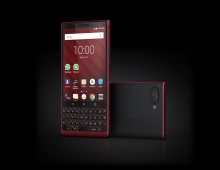
BlackBerry Joins FIDO Alliance and Board
The FIDO (Fast IDentity Online) Alliance, an industry consortium formed to address the lack of interoperability among strong authentication technologies, today announced that BlackBerry has joined the Alliance and been appointed to the Board of Directors.
FIDO members are collaborating to deliver open specifications for universal strong authentication that enables FIDO-compliant authentication methods to be interoperable, more secure and private, and easier to use. BlackBerry is among the first mobile platform and mobile device suppliers to engage with the FIDO Alliance to equip its customers with strong authentication, allowing them to easily move from site to site securely without having to enter identifying information multiple times. As a FIDO Alliance Relying Partner (RP), BlackBerry will be able to better serve its customers on BlackBerry.com, and people who use BBM, BlackBerry Protect and other BlackBerry services around the world, as well as developers submitting apps on the BlackBerry World storefront.
The FIDO protocol will support a full range of authentication technologies, including biometrics such as fingerprint scanners, voice and facial recognition, as well as existing solutions and communications standards, such as Trusted Platform Modules (TPM), USB Security Tokens, Near Field Communication (NFC), One Time Passwords (OTP), embedded Secure Elements (eSE), and many other existing and future technology options. The open protocol is designed to be extensible and to accommodate future technologies, as well as protect existing investments. The FIDO protocol allows the interaction of technologies within a single infrastructure, enabling security options to be tailored to the distinct needs of each user and organization.
Other memmbers of the Fido Alliance include Google, LG Electronics, NXP, Lenovo and Paypal.
The FIDO protocol will support a full range of authentication technologies, including biometrics such as fingerprint scanners, voice and facial recognition, as well as existing solutions and communications standards, such as Trusted Platform Modules (TPM), USB Security Tokens, Near Field Communication (NFC), One Time Passwords (OTP), embedded Secure Elements (eSE), and many other existing and future technology options. The open protocol is designed to be extensible and to accommodate future technologies, as well as protect existing investments. The FIDO protocol allows the interaction of technologies within a single infrastructure, enabling security options to be tailored to the distinct needs of each user and organization.
Other memmbers of the Fido Alliance include Google, LG Electronics, NXP, Lenovo and Paypal.





















